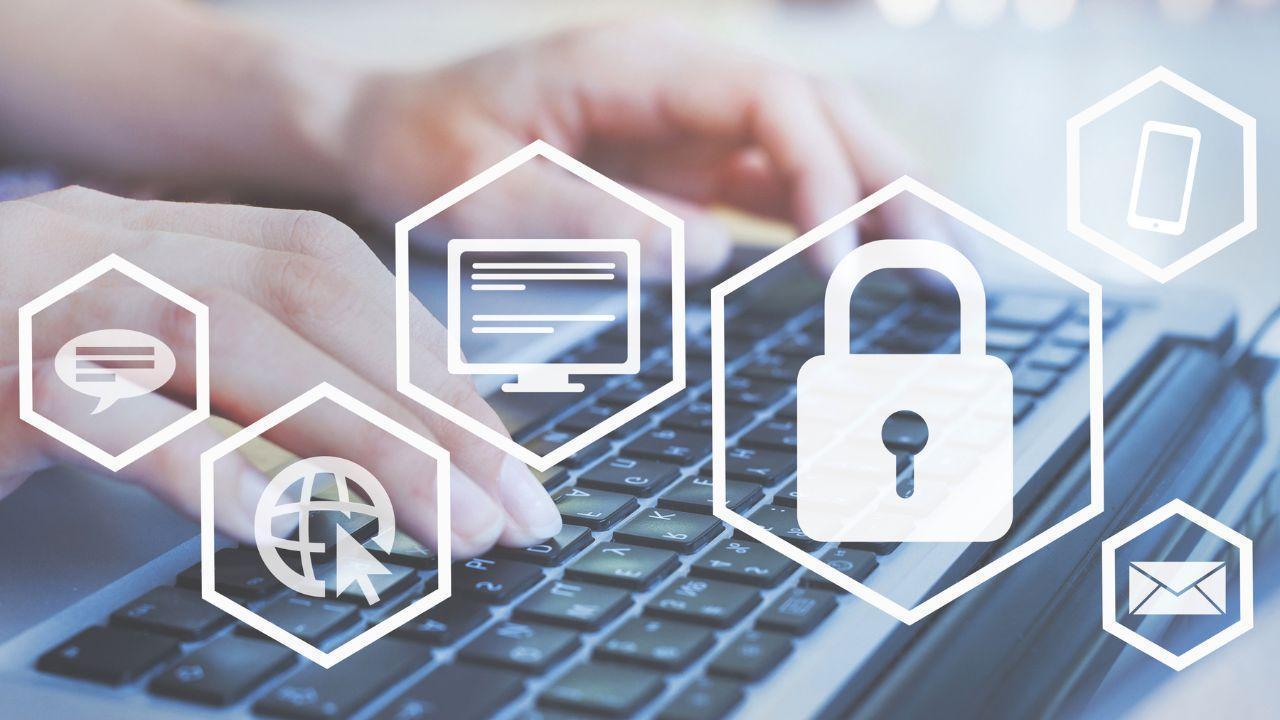



Stay Secure Online: Guard Against Hackers, Scams, and Identity Theft
As a student, most of your life is probably online—studying, chatting with friends, shopping, and doing research. While the internet makes life easier, it also has its risks. Cybersecurity is something every student should take seriously to stay safe from online dangers like hackers, identity theft, and cyberbullying.
In this article, we will guide you on Cybersecurity for Students: How to Stay Safe Online. We’ll provide simple and easy-to-follow tips to help you protect your personal information and stay safe while using the internet.
Why Cybersecurity is Important for Students
Students today use the internet for almost everything. From submitting assignments to attending online classes, it’s important to stay secure. Here are some reasons why cybersecurity should be on your radar:
Now that you know why it’s important, let’s dive into how you can protect yourself online.
1. Use Strong Passwords
One of the easiest ways to stay safe online is by using strong passwords. A password is like the first line of defense against hackers. Weak passwords like “123456” or “password” are easy to guess and can put you at risk.
How to Create a Strong Password
2. Enable Two-Factor Authentication (2FA)
Two-factor authentication adds an extra layer of protection to your accounts. It requires you to enter a second piece of information (like a code sent to your phone) in addition to your password.
Why Use 2FA?
3. Keep Software Up to Date
Cybercriminals often target outdated software because it may have security holes. By keeping your software, apps, and operating system updated, you ensure that you have the latest security patches.
Why It’s Important
4. Be Careful with Public Wi-Fi
Public Wi-Fi at coffee shops, airports, and other public places is convenient, but it’s not always safe. Hackers can easily intercept information sent over unsecured networks. It’s best to avoid doing sensitive tasks, like online banking, on public Wi-Fi.
How to Stay Safe on Public Wi-Fi
5. Protect Your Devices with Antivirus Software
Antivirus software helps protect your computer and smartphone from malware, viruses, and spyware. These harmful programs can steal your personal data or damage your device.
How to Choose Antivirus Software
6. Be Wary of Phishing Scams
Phishing is when a cybercriminal tries to trick you into giving away your personal information by pretending to be someone you trust. Phishing emails or messages may look like they come from your bank, school, or a popular website.
How to Spot Phishing Scams
7. Protect Your Social Media Accounts
Social media is a fun way to connect with friends, but it’s also important to keep your accounts secure. Many students share personal information online, and this can make them vulnerable to attacks.
Tips for Protecting Your Social Media
8. Use Secure Websites
Before entering any personal or payment information online, make sure the website is secure. Look for a small lock icon in the address bar of your browser or a URL that starts with “https” (the ‘s’ stands for secure).
Why It Matters
9. Monitor Your Accounts Regularly
Finally, keep an eye on your bank accounts, credit card statements, and any online accounts. Regularly checking for unusual activity can help you spot problems early.
How to Monitor Accounts
Disclaimer:
The information provided in this article is for general educational purposes only. While Myedugoal aims to ensure the accuracy and relevance of the content, we do not guarantee the completeness or correctness of the information. Readers should perform their own research and consult with relevant professionals or official sources before making decisions related to cybersecurity or online safety. Myedugoal is not responsible for any actions taken based on the information provided in this article.
#trending #latest #cybersecurityforstudents #stayingsafeonline #onlineprotection #myedugoal #cybersecuritytips #studentsecurity #onlinesafety #digitalsecurity #secureyourdata #studentcybersecurity

University Internships That Help You Get a Job After Graduation... Read More.

Is It Smarter to Start at a Community College... Read More.
 Fake posts hit Czech PM Fiala's X
Fake posts hit Czech PM Fiala's X
Fake posts disrupt Czech PM Fiala's X account security
 Switzerland Tightens Export Rules
Switzerland Tightens Export Rules
Switzerland expands export controls on dual-use goods
 Google unveils Ironwood AI chip
Google unveils Ironwood AI chip
Google introduces Ironwood chip to accelerate AI tasks & apps
 TSMC Q1 revenue up 42%
TSMC Q1 revenue up 42%
TSMC sees 42% revenue surge in Q1, surpassing forecasts
 Amazon CEO Outlines AI Vision
Amazon CEO Outlines AI Vision
Amazon CEO reveals AI investment plans in new letter
 Osaka Hosts World Expo 2025
Osaka Hosts World Expo 2025
Japan blends tech and culture at Osaka Expo 2025 launch
 A16z Plans Big Bet on AI Startup
A16z Plans Big Bet on AI Startup
A16z may lead huge round in ex-OpenAI CTO’s new AI firm.
© MyEduGoal. All Rights Reserved. Design by markaziasolutions.com